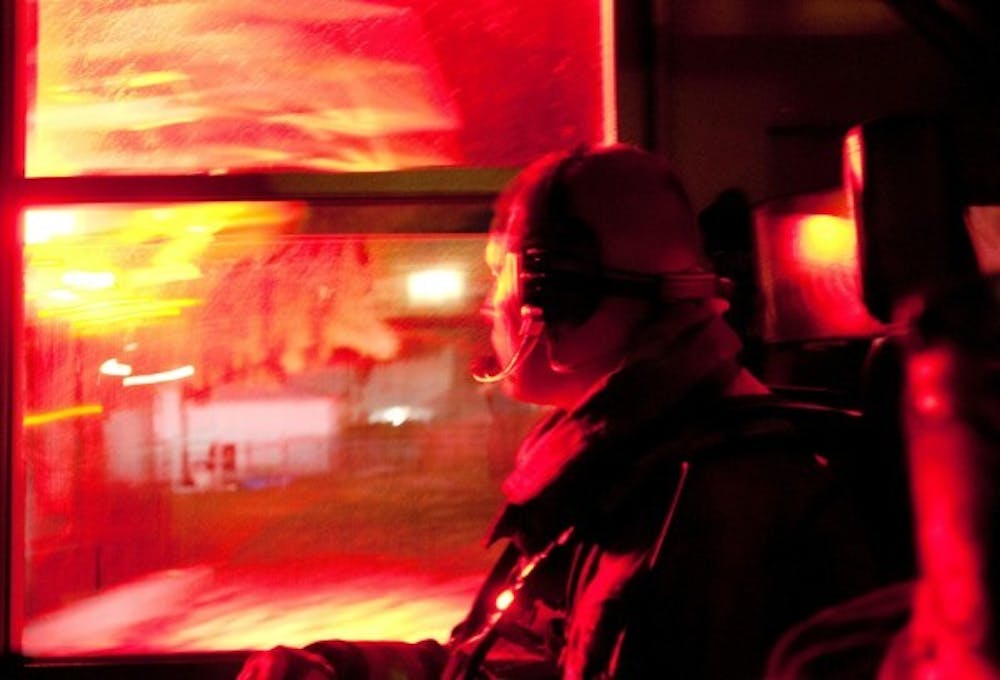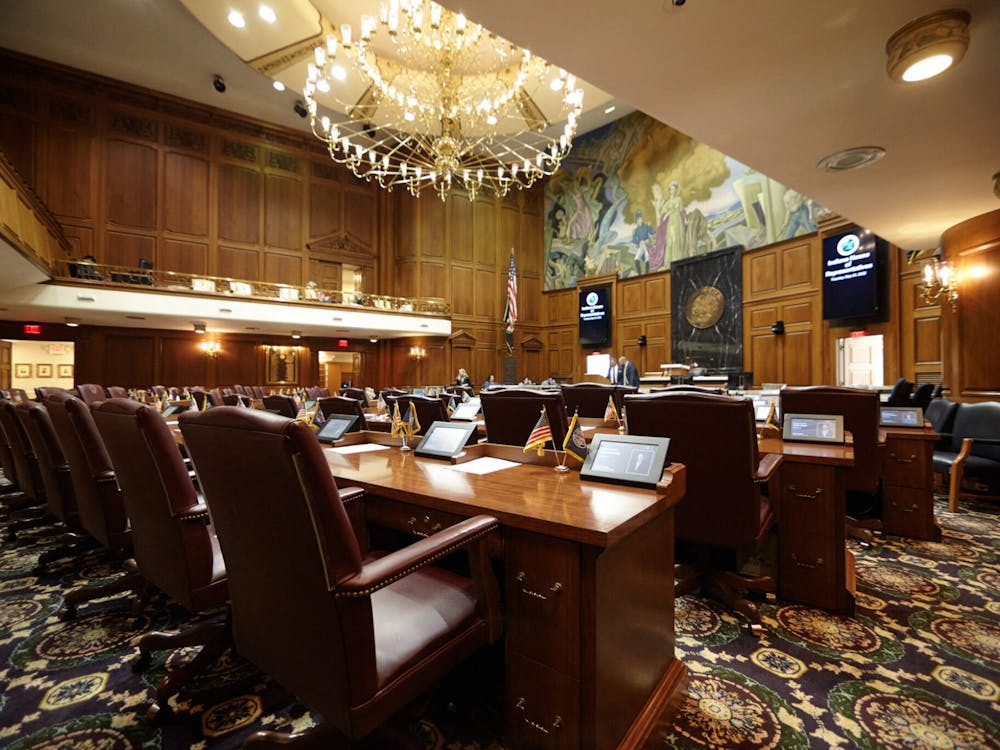Austin Rich speaks in a drawl that makes one think of the Deep South. His voice has a twang to it that matches the vocal notes found in parts of Texas or Georgia that masks his Muncie heritage. Rich takes pride in his heritage, and his family. On his wrist, crawling up part of his forearm is a tattoo of flames. And on his shoulder is a tattoo of a firefighter talking to his son while walking into heaven.
Rich is a second-generation firefighter working at Fire Station 2, the same fire station where his father worked; he and the men he works with consider their fellow fire fighters to be brothers in a family. He refers to them as, "Brother firefighters."
And he is quick to point to the more experienced members of the crew when it comes to interviews.
"I love working with these guys," said Shane Mann, a fellow fire fighter at Station 2. "When you talk about the fire department, you always hear about the brotherhood and you know, it truly is."
Starting in 2009, the brotherhood was tested. And Rich would be in the middle of it.
In 2009 a fight over budget issues came to a head between the administration of former Republican Mayor Sharon McShurley and the Muncie Fire Department. Muncie was in the middle of a deficit problem of over $3 million and was looking for a way out of debt. McShurley asked both the police and fire departments to each find a way to cut $1 million each and warned the city council that if concessions were not made, layoffs would begin.
"The first thought going through my mind was disappointment," said Rich, who at the time was the Vice-President of the local International Association of Fire Fighters 1348, "she gave us a problem and we were ultimately giving her solutions to solve them and every solution we proposed to her, it was almost like they had already made up their minds."
Eventually, McShurley issued a state of emergency, declaring that, unlike the police department, the fire department had been unwilling to meet the concessions that the city had asked for, and ordered 40 firefighters out of 109 to be laid off, a number that was later reduced to 32, of 109 fire fighters. And the closing down of two fire stations; Fire Station 1 and Fire Station 4, a decision that was praised by some and hated by others. Austin, who had been a fire fighter for about three years by this time, was suddenly out of work in a tumbling economy.
"We had no choice," said Rich, referring to himself and the others laid off. "We picked up the pieces. We all had families to care for. I was expecting my second child and I lost my insurance. It's almost like starting back at square one. Some guys had six years in. To have six-plus years in a career and have that lifted away is pretty sickening."
Rich took a job as an emergency dispatcher until a federal grant known as the SAFER (Staffing for Adequate Fire and Emergency Response) grant, brought back 25 of the 32 laid off fire fighters after 14 months. The brotherhood took a hit, but stayed together.
"Just because we weren't doing our tour of duty didn't mean we weren't Muncie Firefighters," Austin said. "You never felt alone, you never felt displaced. When we got back together it made us stronger."
The episode would eventually lead to a strong support from the fire department for recently-elected Mayor Dennis Tyler, who ran on a platform that supported the rebuilding of the Muncie safety departments. Tyler himself was a fire fighter for 42 years.
"I think [the firefighters] trust me," said Tyler when asked about how he was going to redistribute manpower to reopen Fire Station 4. "We have to find ways to spend that money as responsibly as possible. The fire fighters understand that. "
Many within the department saw the 2011 election of Tyler as a win and on election night at Muncie's Democratic headquarters, many of the speeches focused on having a mayor that the Democratic city council could work with, a feeling echoed by several firefighters recalling the tumultuous times of the 2009 budget negotiations. However, the brotherhood was still healing from a wound that had been inflicted upon it only six months prior.
Scott Thomas Davis, Austin's second-cousin, had joined the MFD on June 13, 2005 but lacked the seniority to escape the layoffs of 2009. He was one of the 25 firefighters that returned to duty through the SAFER grant that had been given to the city.
On June 15, 2011 lightning struck the Tabernacle of Praise Church. By 3:55 p.m. several Muncie firefighters were on the scene, including Davis, Rich, Mann and other members of Fire Station 2. About twenty minutes later the roof to the sanctuary collapsed killing Davis and wounding Mann and Lt. Alan Richards.
All the firefighters in the building that day were given the local Fire Fighter of the Year Award.
More than six months later, the wound is still fresh for the department and for Davis' friends and family.
"It's still a pretty fresh wound for a lot of us," said Mann, who was injured in the building collapse but escaped with Lt. Richards after finding a window that the two jumped out of.
"That's going to be something that will be with us for the rest of our lives. That was a life-changing event. When you start talking about it again it's like ripping that scab off that wound you just got. He was a great fire fighter, aggressive. Aggressive in a good way, the best way to honor Scott is to get back up on that truck and be an aggressive fire fighter too."
The reaction by the community and by other fire fighters was an outpouring of grief that showed how close-knit the brotherhood was. The event caught the attention of the Associated Press and led to a funeral service for Davis that was attended by more than 1,500 people. Including firefighters from Canada, then-State Representative Dennis Tyler and U.S. Rep. Mike Pence. The event and grief surrounding it became the number one story in the Muncie Star-Press for 2011.
It is with this mixed feeling of healing and the expectation and questions of rebuilding that the Muncie Fire Department enters the New Year. But despite these challenges the brotherhood remains strong. Because as Rich said, when it comes to being in the brotherhood, despite the situation, you're never really alone.





